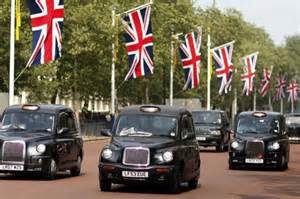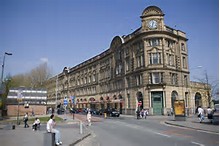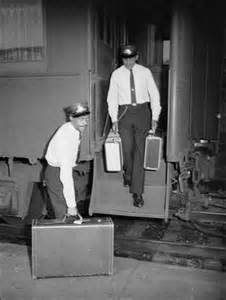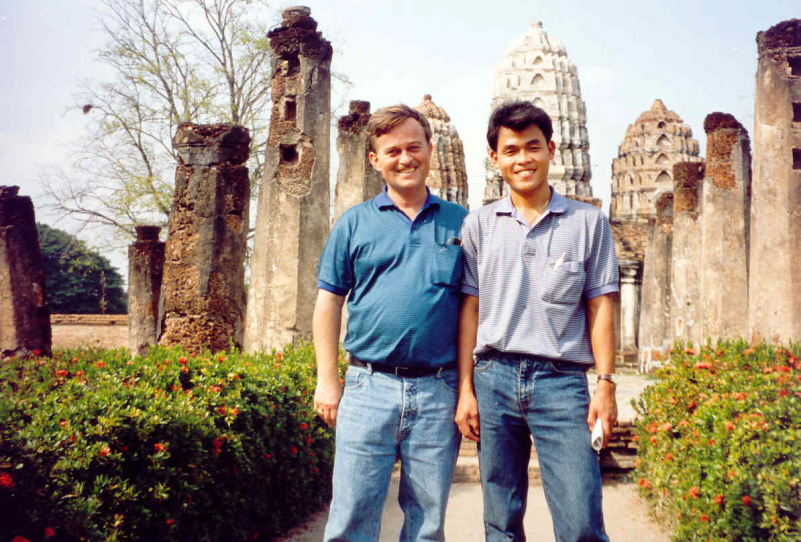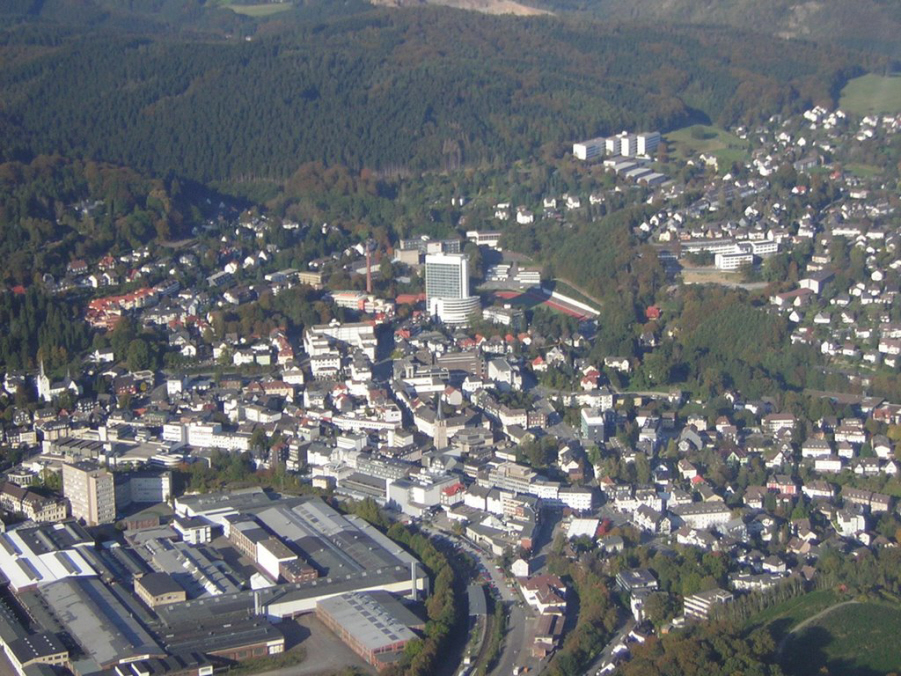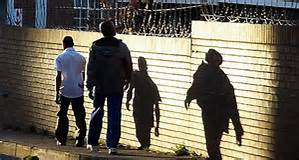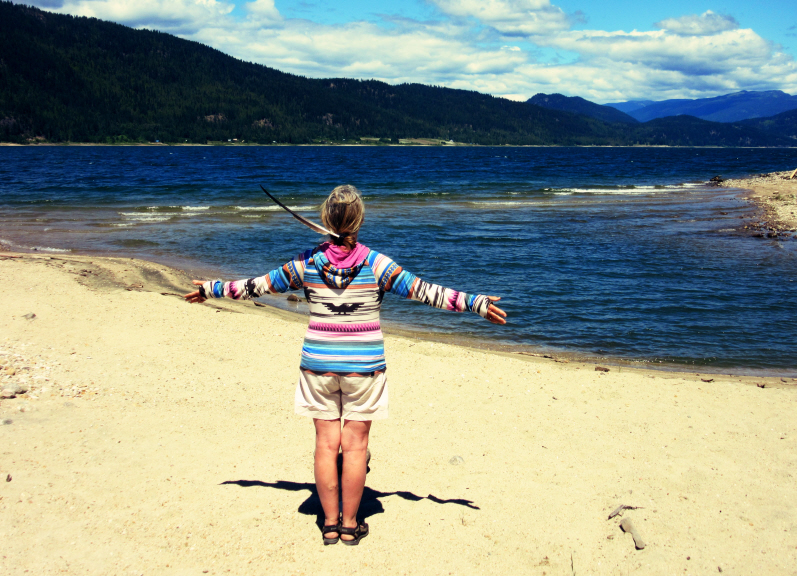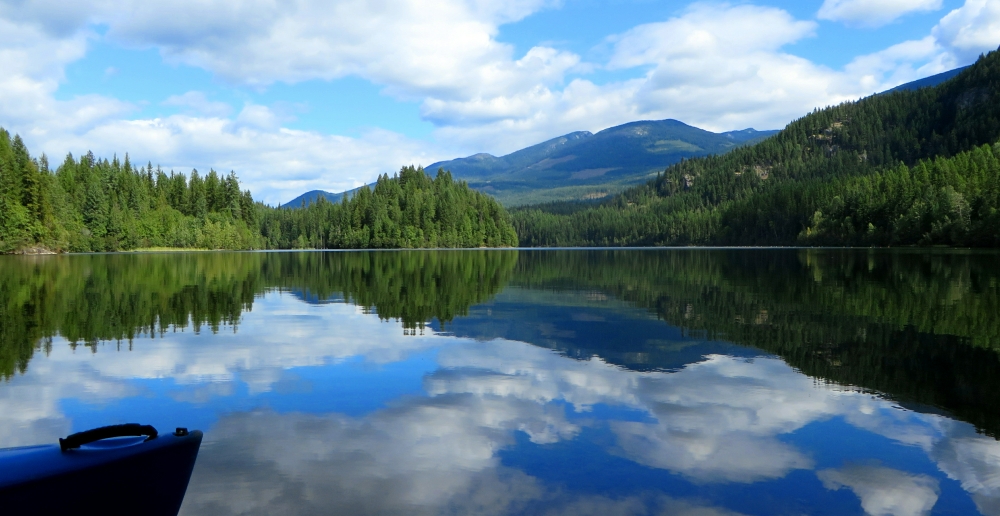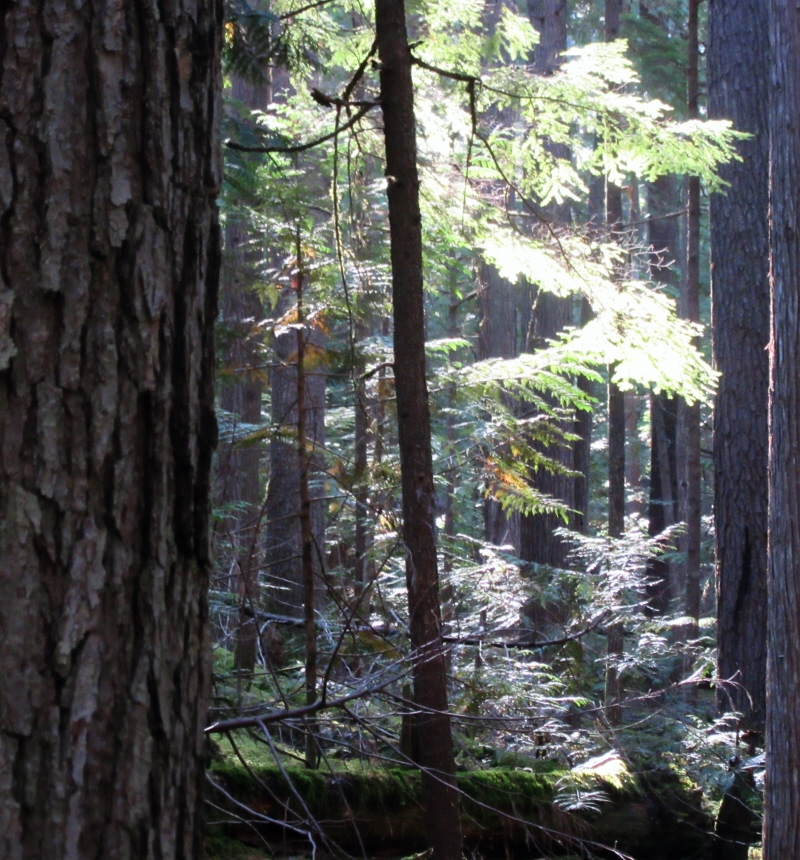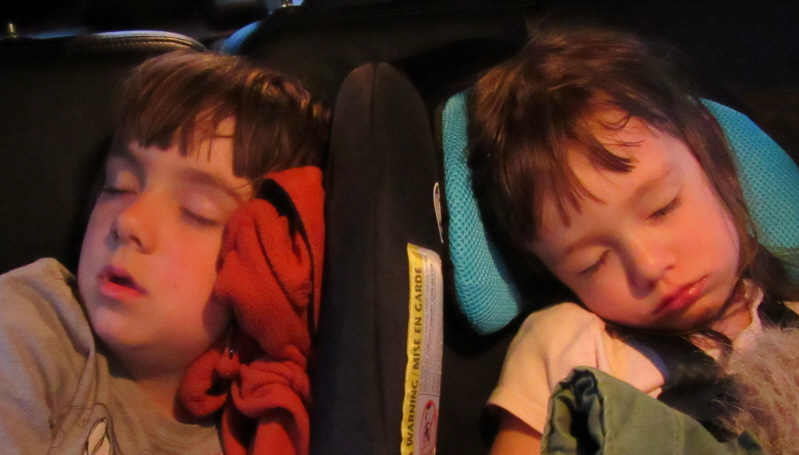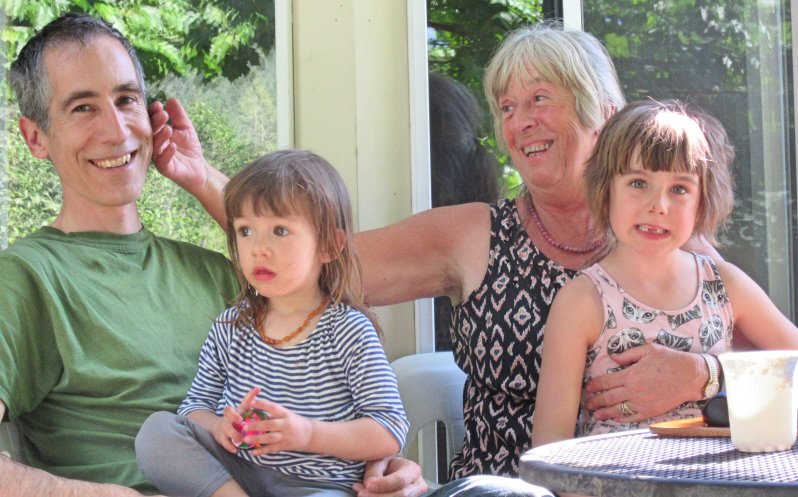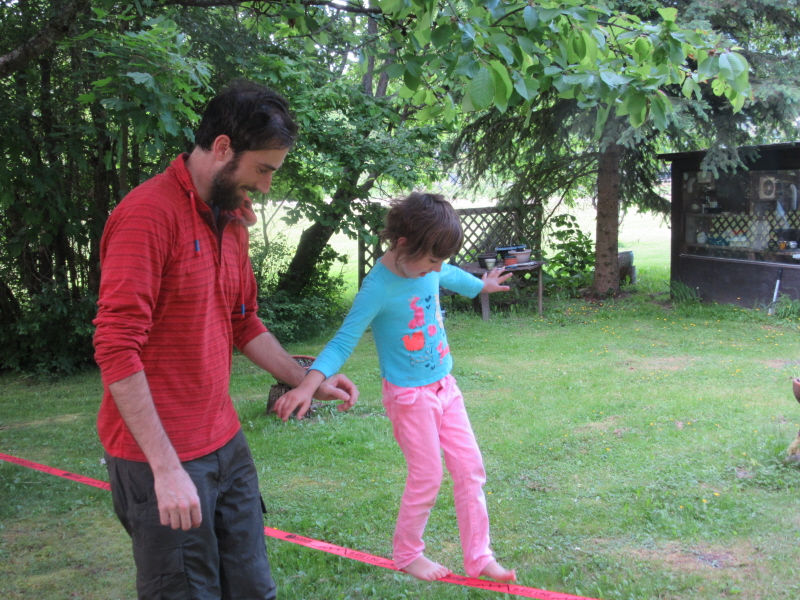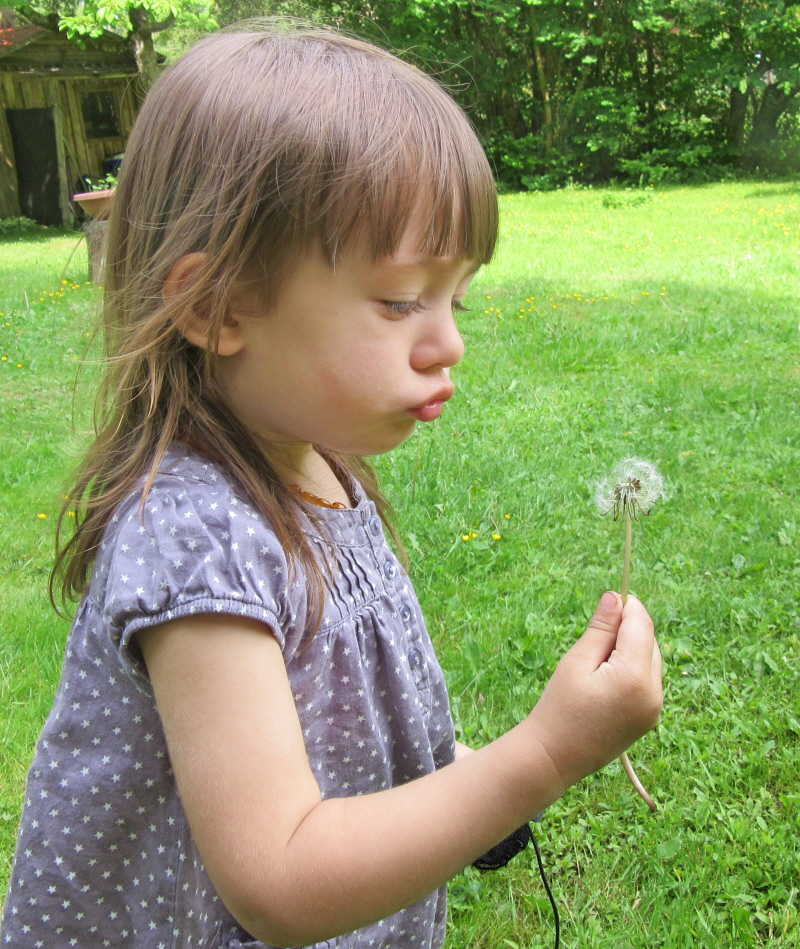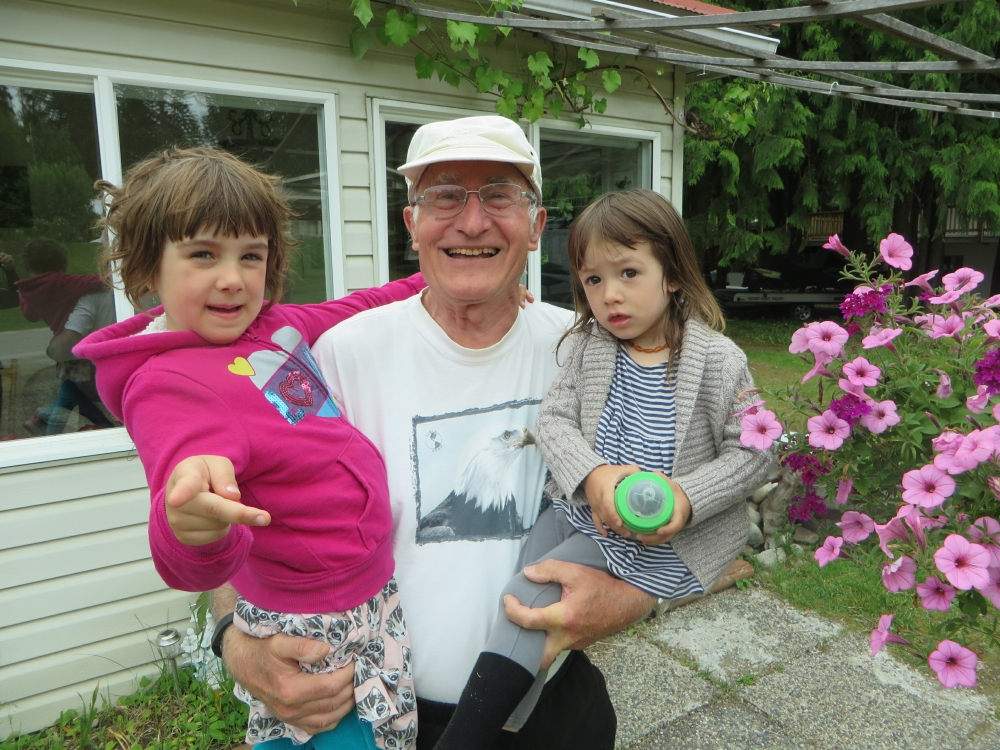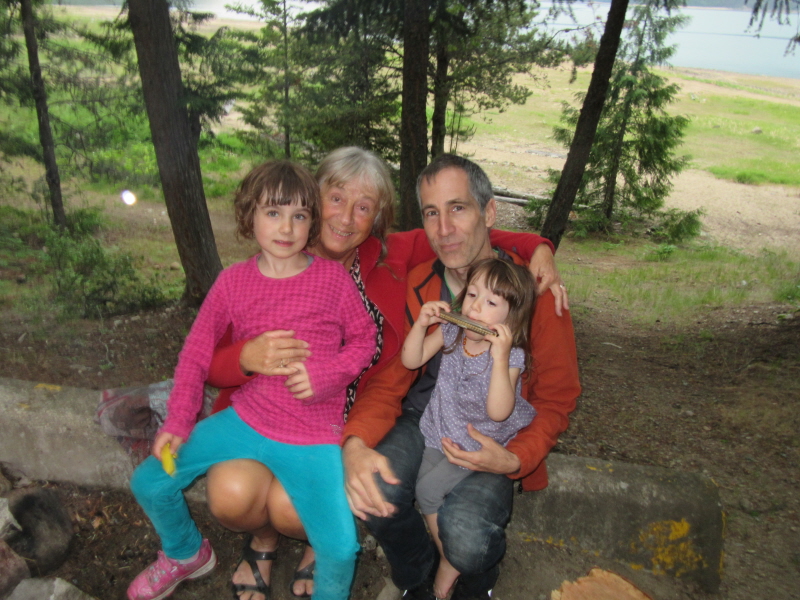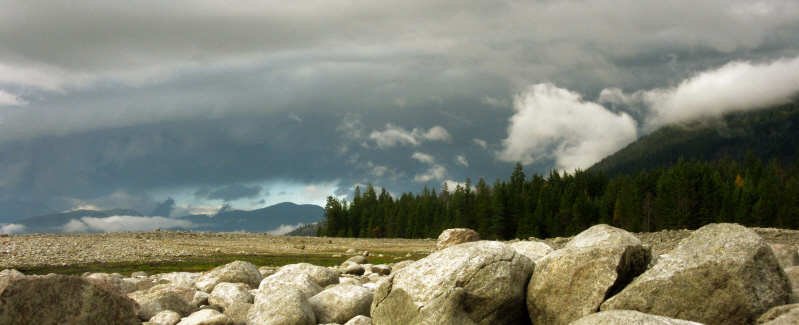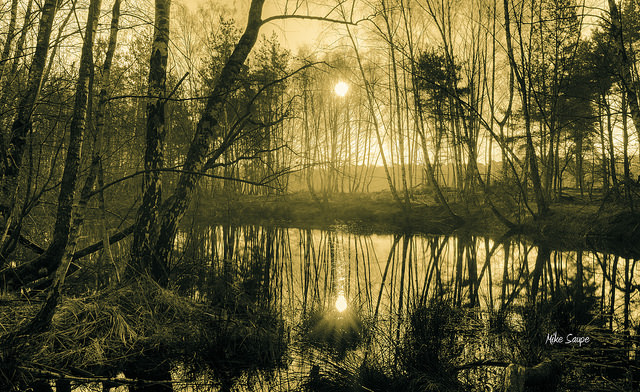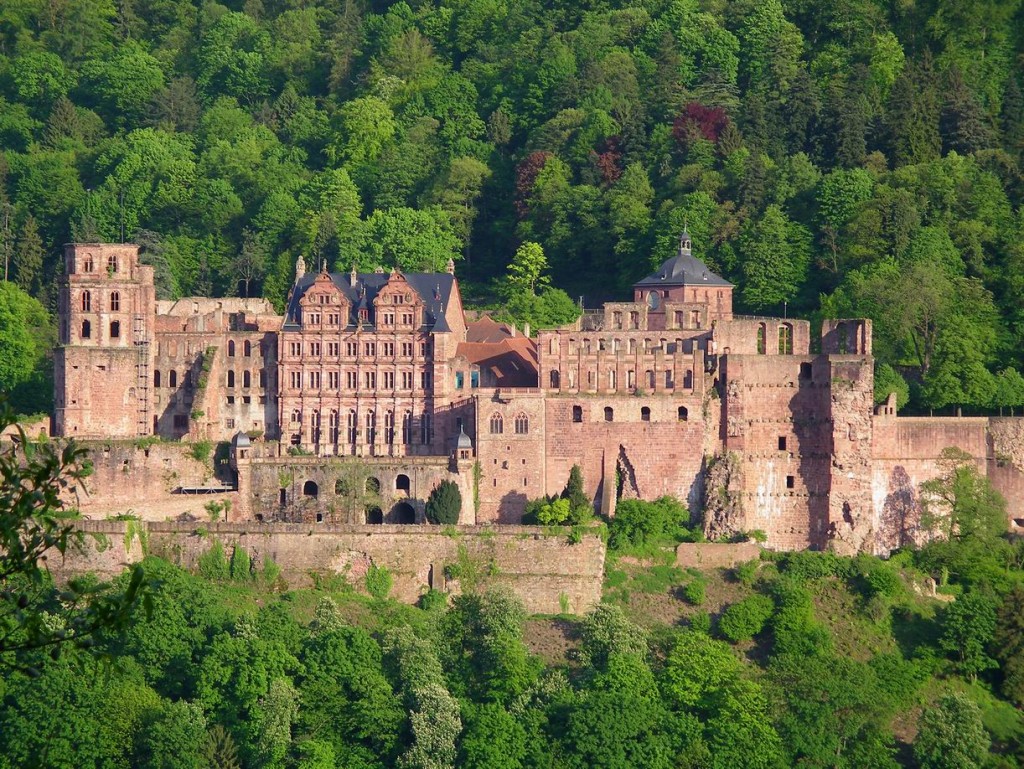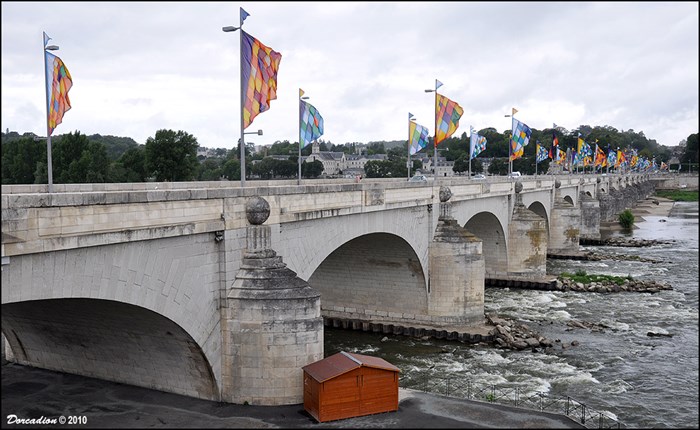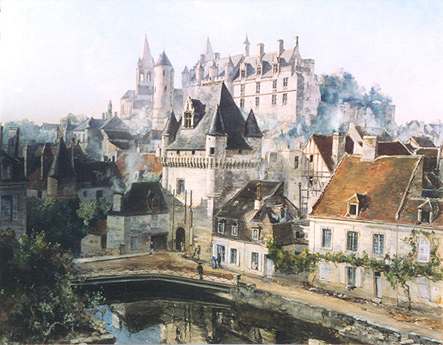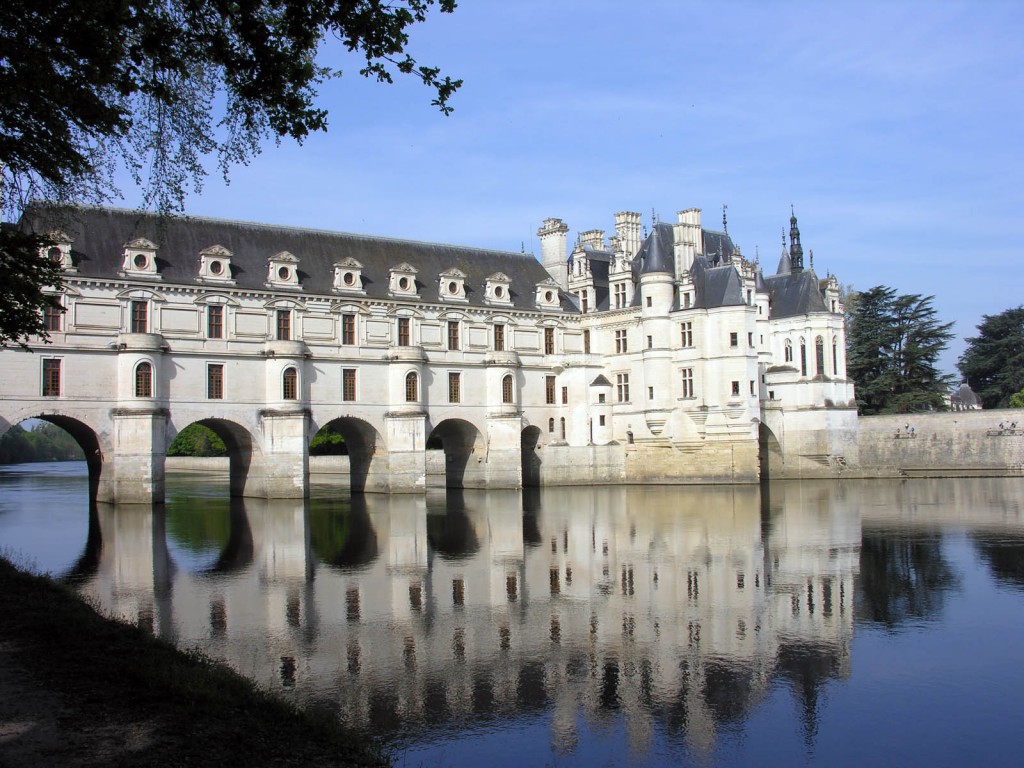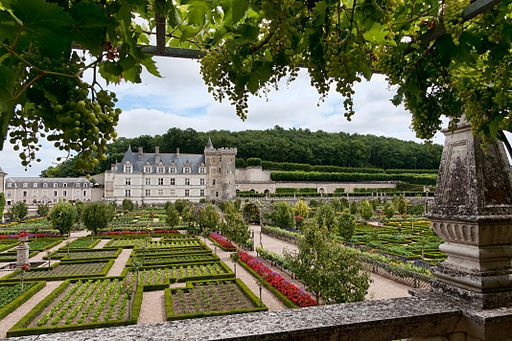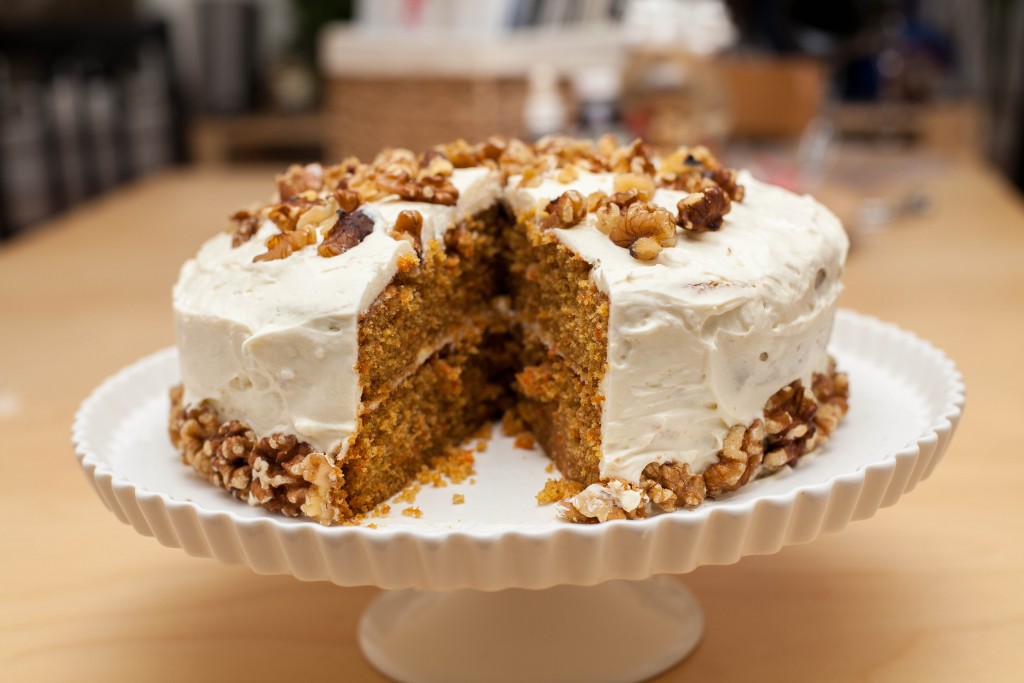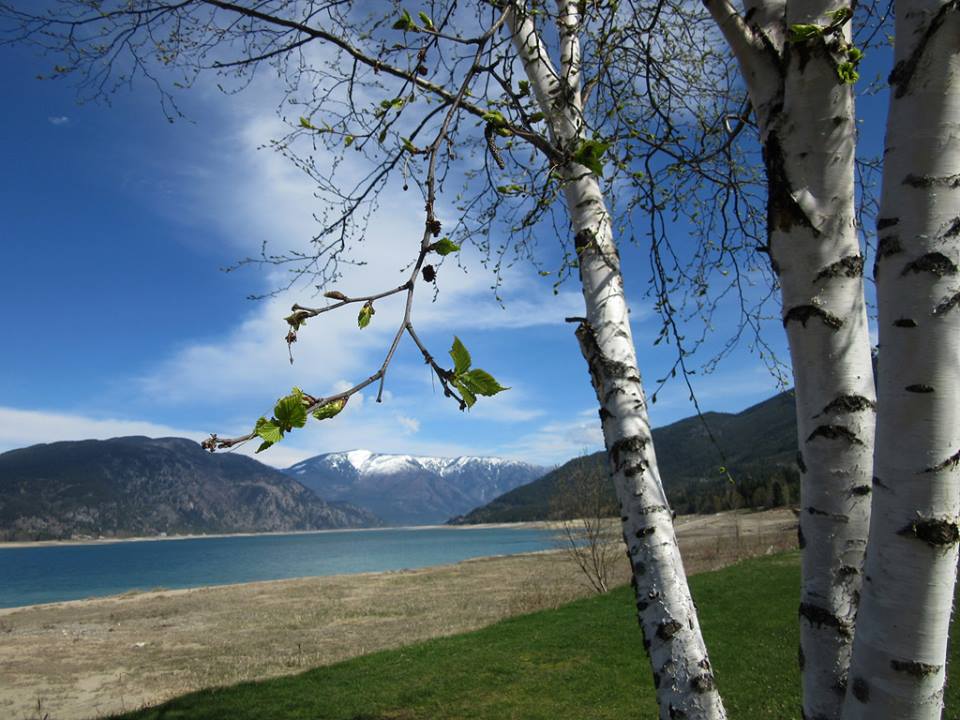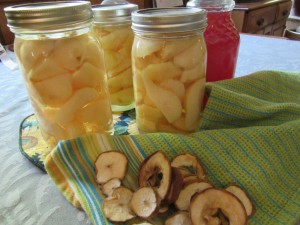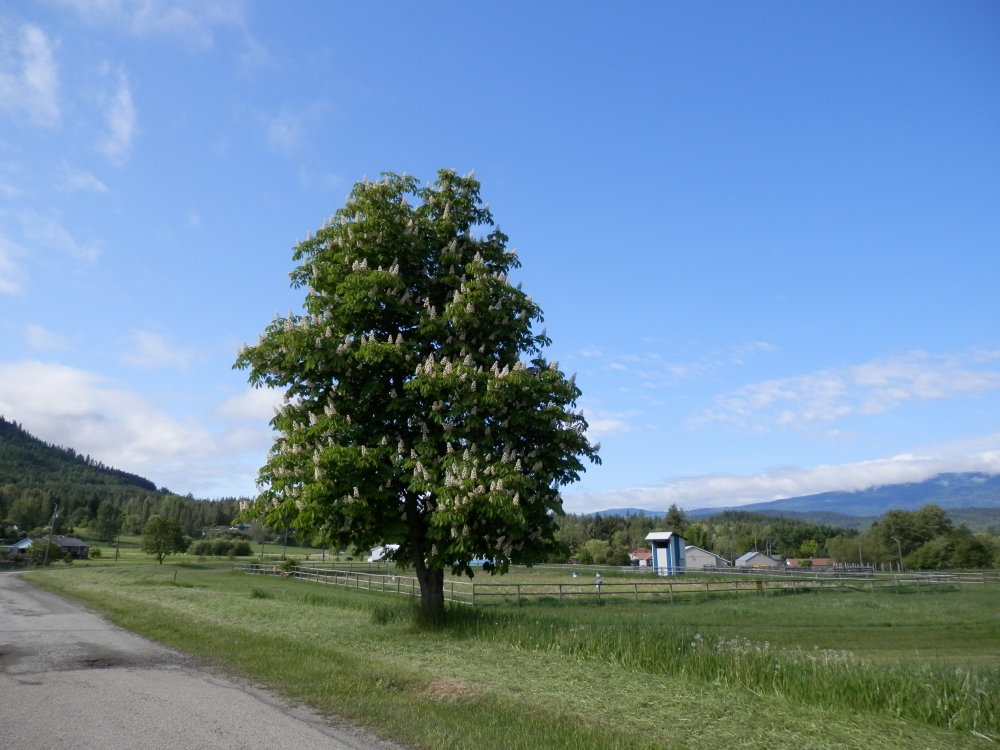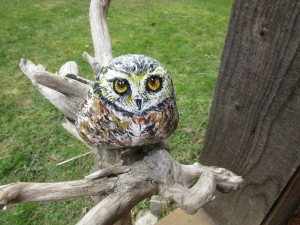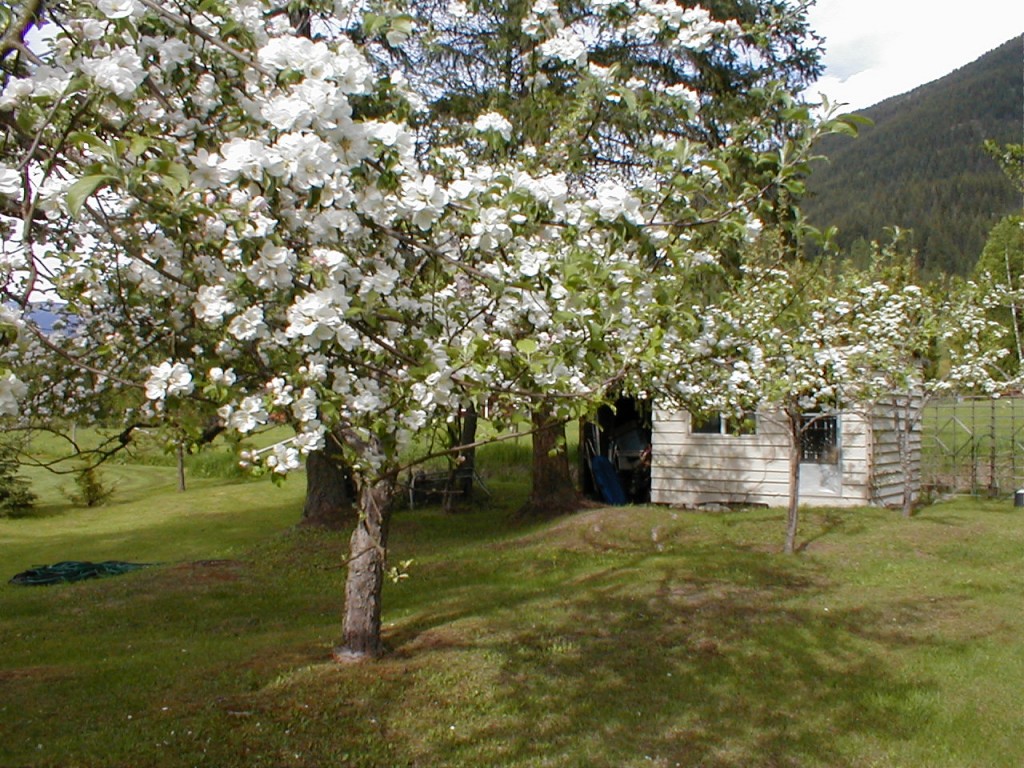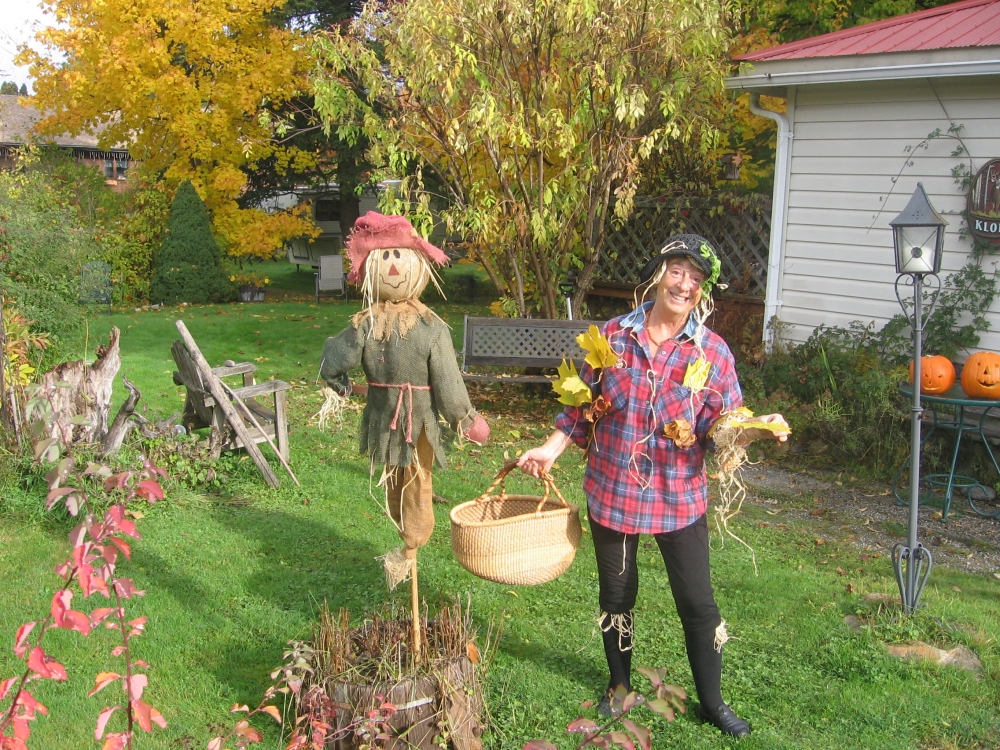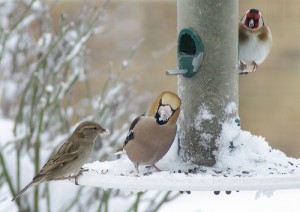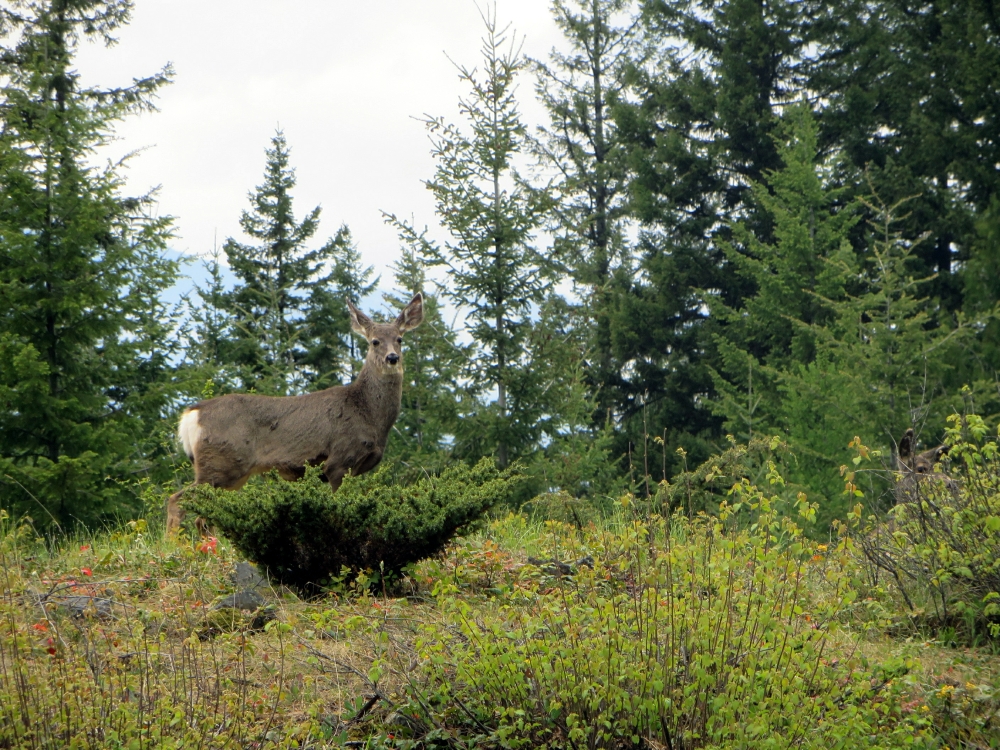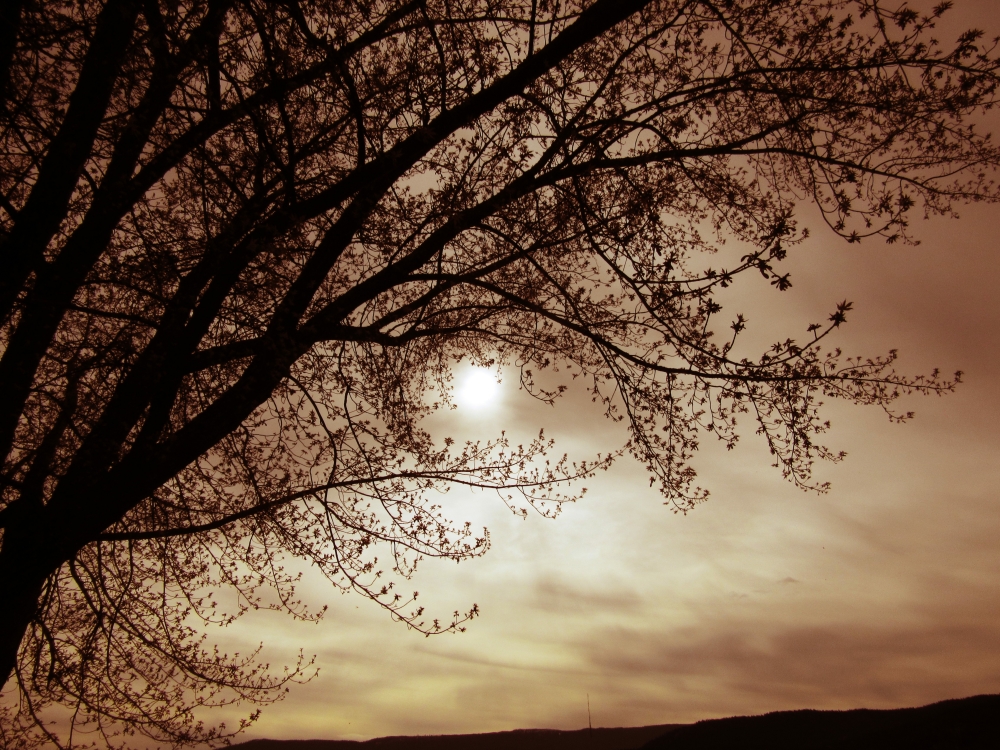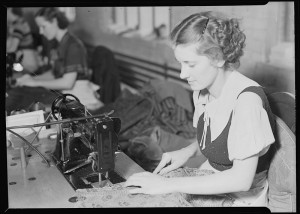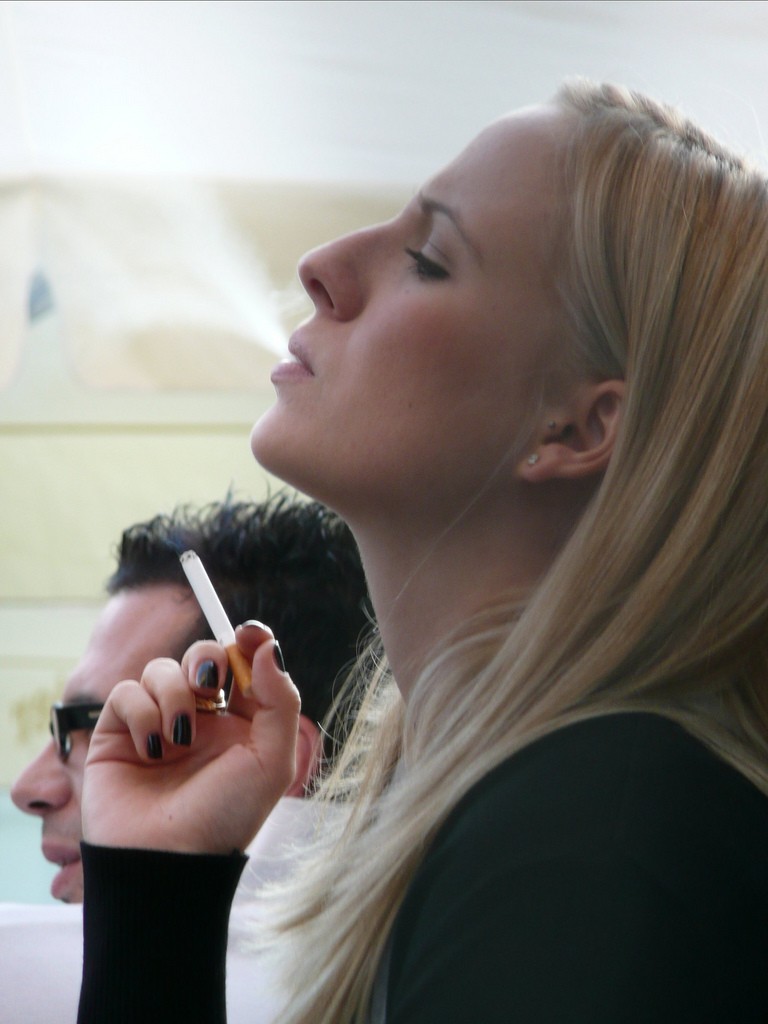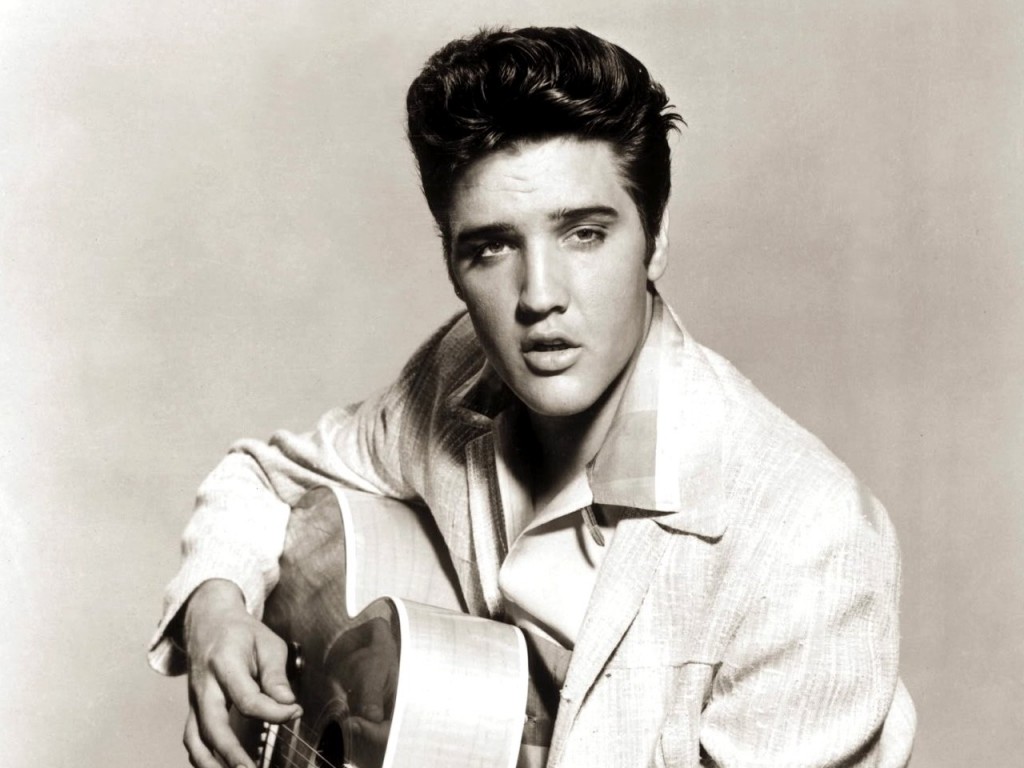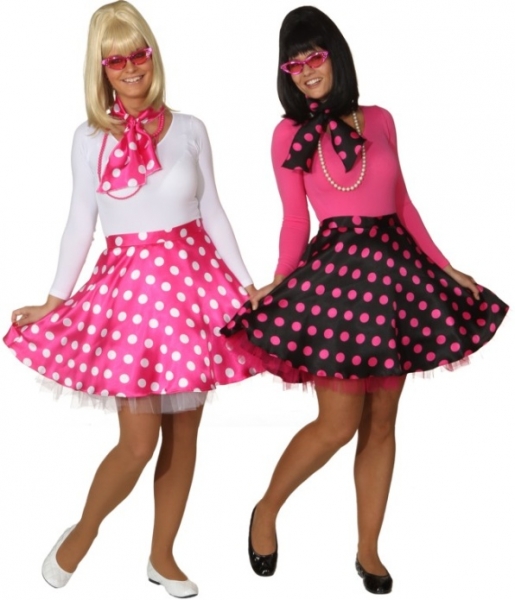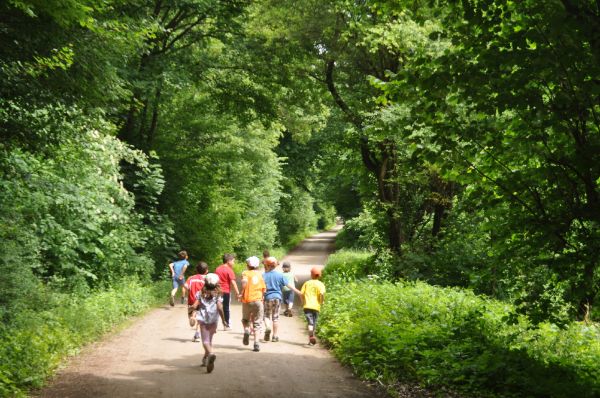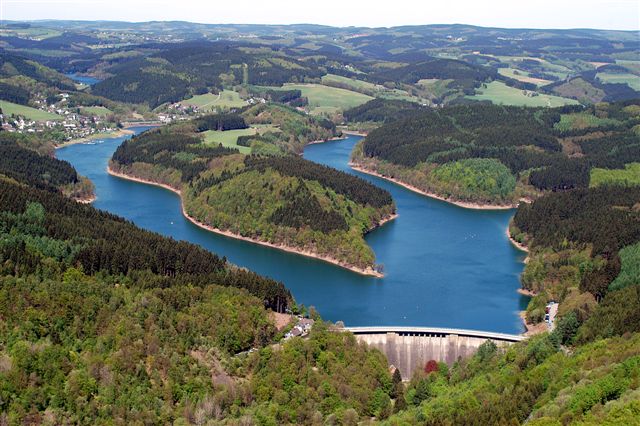In the soft evening light the pastoral landscape is flying by like a series of beautiful paintings. My memory is blurred like a dream. I only remember, meandering little rivers, soft wooded hills, small orchards, vineyards, and villages nestled into the valleys. Over the ages houses and walls built out of local rocks and materials have become an integral part of their natural surroundings. I wished to have more time to explore and to meet the local people.
 Darkness is setting in, when we arrive at Brays et Mons. Rob has no problem finding his destination. There are only a few houses built out of gray rocks almost looking like fortresses. We reach a beautifully fenced in yard. A dense profusion of blooming shrubs and budding leaf trees is hiding the residence from view. Rob drives slowly through the decorative iron gate onto a wide driveway leading through a small park towards a charming white building. It looks like an elegant mansion or small castle. Big windows, balconies, terraces and airy French doors are leading from all directions into the garden. In contrast to the well-kept building, the flowerbeds and lawns are overgrown with weeds and winter debris and look neglected.
Darkness is setting in, when we arrive at Brays et Mons. Rob has no problem finding his destination. There are only a few houses built out of gray rocks almost looking like fortresses. We reach a beautifully fenced in yard. A dense profusion of blooming shrubs and budding leaf trees is hiding the residence from view. Rob drives slowly through the decorative iron gate onto a wide driveway leading through a small park towards a charming white building. It looks like an elegant mansion or small castle. Big windows, balconies, terraces and airy French doors are leading from all directions into the garden. In contrast to the well-kept building, the flowerbeds and lawns are overgrown with weeds and winter debris and look neglected.
“Here we are, at the Castello de Bray et Mons,” says Rob with a big smile.
I am delighted. It has been a full day, progressively getting better after a stressful start with our vehicle. And there is the prospect of a grand finale.
The patron of the estate meets us at the colorful stained glass doors of the entrance. He is a stout, middle-aged man of medium height with unremarkable features. He greets us formally in French. Obviously he has been expecting us, and as he indicates, a bit sooner. Grabbing our luggage, he immediately leads us up a flight of an amazing spiral staircase. It is the masterpiece of a noted French architect whose name I forget. The bedrooms are situated in a circle around the landing. The patron deposits our luggage in front of one of the doors and unlocks it with a big old-fashioned key.
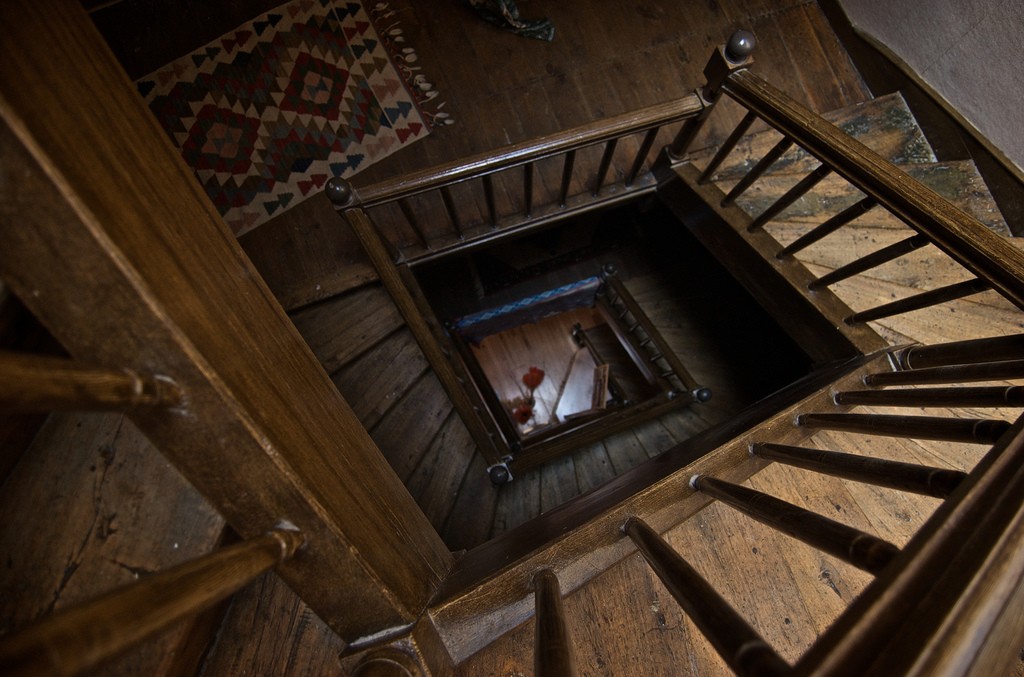
“Voilà,” he says with a discreet side-glance at me.
I am riveted to the floor. After having seen the dolorous black room decorated in somber colours at Chanonceau this room is a dream in white. The enormous bed dominating the chamber is covered with starched, immaculately white linen adorned with precious lace. The wall tapestry is of a shining white silk material. The soft white carpet is spotless. Delicate sheer curtains like bridal veils are gently moving in the evening breeze in front of the open French doors. On a lace covered table stands a magnificent vase with blossoming branches in it. White petals have fallen on a small statue of stone lovers intertwined forever in a passionate embrace. The end of the room is partitioned off by a white Dutch gate barely hiding a huge white enameled bathtub standing on golden feet in front of a mirrored wall. Two luxurious white bathrobes are hanging over a bench. The room radiates such untouched beauty that I envision a delicate princess, like Snow White, lying on that immaculate bed, forever waiting for her prince.
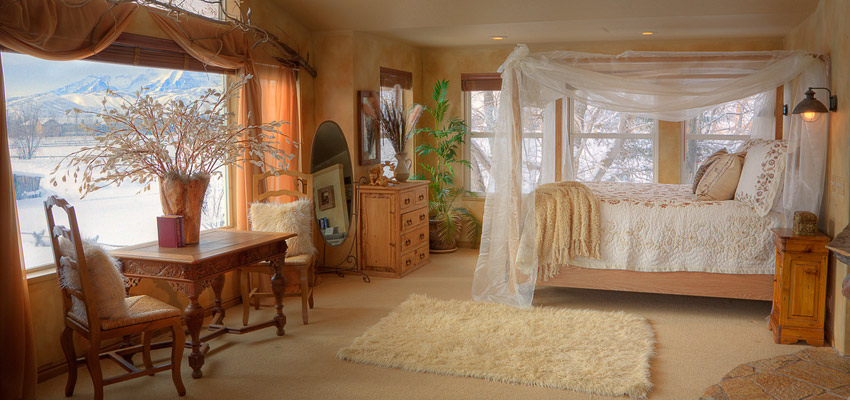
Rob and I are standing at the entrance spell bound. I don’t know for how long.
“Ça vous plaît?” the proprietor suddenly asks breaking the silence.
“Enchantée”, I reply, “mais…” I stumble nervously searching for appropriate words to explain that I cannot sleep in this enchanting bridal chamber with my son.
“C’est mon fils”, I finally manage to say in French.
The patron seems unperturbed. “Votre fils, votre frère, votre mari, ça ne m’intéresse pas. C’est votre affaire,” he answers shrugging his shoulders to show his indifference.
“Rob,” I whisper panic stricken in English, “we have to get another room. This is a honeymoon suite.”
“Yes, Mom,” Rob agrees, “but it is getting late, and I don’t know if there are other hotels in this small village.”
Trying to take control of this embarrassing situation, I ask in an assertive voice, “Une autre chambre, s’il vous plaît?”
The proprietor staring into space with a bored expression mumbles, “C’est dommage, but..,” he continues in perfect English, “ we have one more room available, which, however, will cost you more.”
“Oh, you speak English!” I exclaim surprised. Taking a deep breath I almost shout, “In my fax I told you that I would come with my son. How can you offer us this inappropriate room and charge us more for another one!”
Provoked by his arrogance I am not afraid to create a scene. Rob, however, immediately interrupts my attempts to fight for a fair deal saying in a firm voice, “Mom, leave it to me, I am paying for the room.”
Grabbing our luggage the proprietor quickly leads us to the adjacent hunter’s chamber.
“Voilà, Monsieur,” he says completely ignoring me.
Rob whose face had disappointment written all over moments ago immediately lights up. This room is more to our liking. Two solid rustic beds with beautifully crafted thick quilts look very inviting. Original paintings and precious tapestries depicting local wild life and colourful hunting scenes adorn the walls. Fresh scented air is wafting in from the garden through the big open windows. I am happy that there is a door in front of the bathroom allowing for privacy. The bathtub is not standing on golden feet as in the white room but is spacious and comfortable. To my great joy there are also two thick, luxurious bathrobes at our disposal, one pink and one blue. Would Peter and I have enjoyed sleeping in the white room I briefly ask myself. Definitely not!
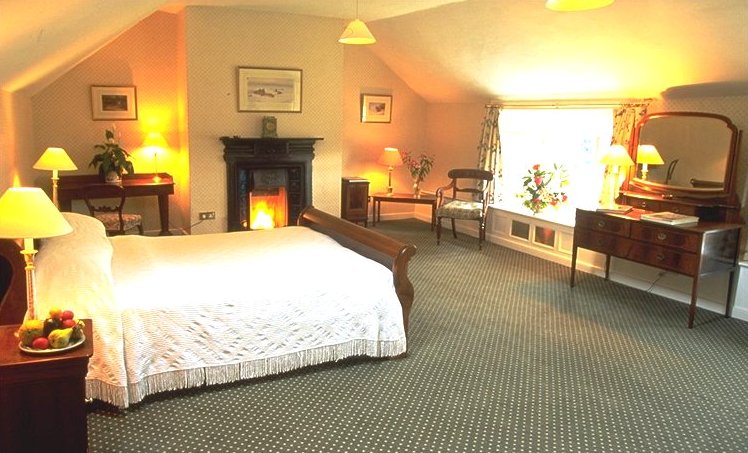
Blissfully relaxing in soapy suds before changing for dinner I call out to Rob, “This is so wonderful Rob, I feel like a queen!”
We arrive in the floral dining room around nine, which for French standards is not late. The tablecloths, napkins, curtains and tapestry are all printed with boldly colored oversized spring flowers. The small bouquets of real flowers on the tables are lost in this overpowering display. A tall, young waiter with a sad look in his dark eyes seats us at a corner table with velvety green benches. Only two other tables are occupied. One with two formally dressed middle-aged couples from Belgium, overweight and red faced, talking loudly. On the other table are two elderly couples from Britain, sprightly thin and wrinkled, engaged in a more subdued conversation. I wonder with a chuckle, if they have also been offered the bridal chamber first.
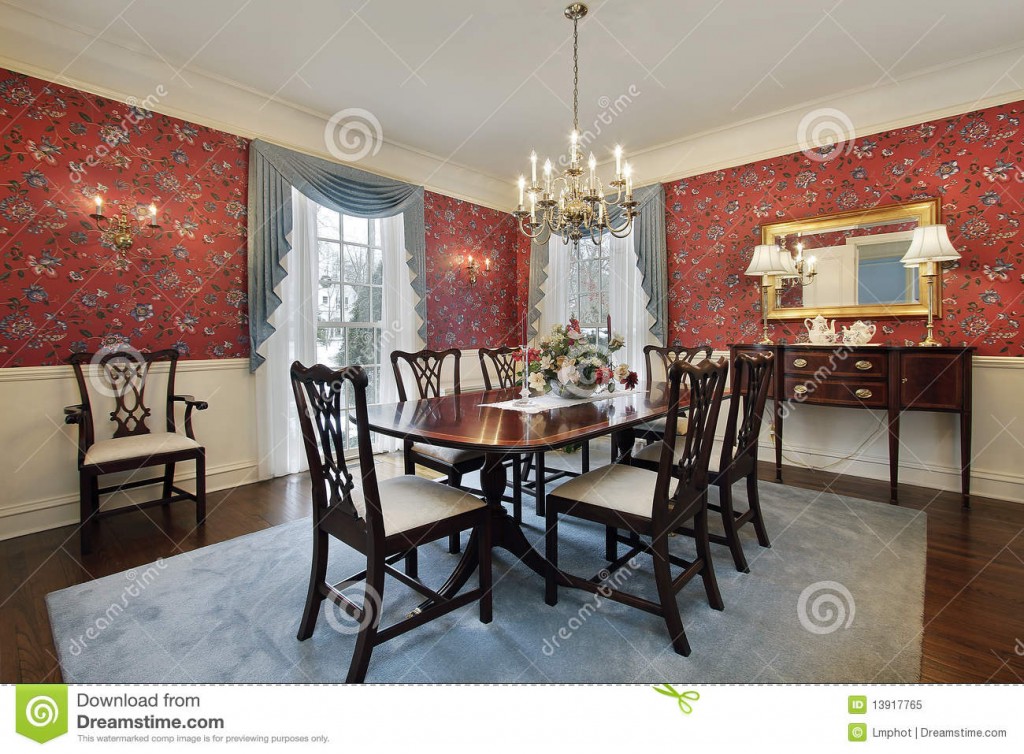
Rob decides to be adventurous and orders snails for his entrée. That would be my last choice. Only under the ultimate threat of starvation would I try them. But for Rob’s sake I make a special effort to hide my feelings of disgust. I order salmon mousse. Both Rob and I are pleased by our first choices.
“Snails taste a bit like squid,” Rob informs me.
Animated by a second glass of delicious house wine, we try to select the main course. We both have developed a hearty appetite.
“Rognons de boeuf seems like a good choice to me,” I tell Rob who is seeking my advice.
Rognons I think means little round pieces and boeuf is beef. While studying the menu, I realize that my language skills are still very limited when it comes to deciphering specialties of French cuisine. At least I know that boeuf is beef. A safe choice, I think.
We are on our third glass of wine and in animated spirits, when the serious looking young waiter quietly serves us our main course. I notice a faintly sour smell coming from my plate and those little round pieces in the whitish sauce are definitely not pieces of beef.
“French beef looks very different,” I say jokingly to Rob discreetly inspecting a small round specimen on my fork.
“Mom, this is not beef, these are kidneys you ordered,” Rob says with a disgusted look on his face.
“I hate kidneys!” I had not seen kidneys since my early childhood when my father sometimes used to eat them.
I am immediately overcome with the same strong feelings of nausea, which this dish used to provoke in me then. Trying to keep control, I quickly push the plate aside. In an instant the young waiter arrives at our table.
“Is something wrong?” he asks in perfect English pointing to my plate.
I am perplexed. He had stood there silently waiting for our orders when I had explained to Rob that ‘rognons de boeuf’ mean little round pieces of beef. I had assumed that he did not speak English. He could have helped us with our selection. But I will not blame him.
“Sorry, we made a mistake ordering this dish. We both don’t like kidneys,” I say.
For the first time this evening the young man’s face lights up in a sympathetic smile and he answers, “I don’t like them either. I’ll take your plates back and you can order something else,” he offers. “Maybe I can convince my father not to charge you extra for these,” he adds.
But I have my doubts. “No!” I say firmly brushing aside Rob’s protests. ”This is my mistake and I’ll pay.”
“Anyway,” the young waiter briefly interrupts, “I’ll bring you another glass of wine which is on me and I’ll help you with the selection on the menu when you are ready.”
Having lost our appetite for meat this evening, we choose a local seafood dish, which turns out to be a tasty choice.
“Where did you learn English so well?” I ask the young man who seems to like talking to us.
“In Florida,” he answers. “I was born and raised there by my Francophone parents. After their divorce two years ago, my father bought this place and moved back to France.
“You must love it here!” I exclaim. Impressions of the beautiful countryside and castles are still vivid in my memory.
“Not at all! I hate it here!” he says emphatically, looking sad again. “I want to go back home to the States.”
Lingering over a delicious desert of crème brulé, we are the only guests left. The young man takes the opportunity to join us again. In an animated conversation, he and Rob, both natives of North America, amicably exchange their thoughts and impressions of their life in Europe. I sit back relaxing, sipping my wine, enjoying the moment, and the transient friendly relationship with this young man. Before he can say good-bye, he is abruptly called to the kitchen by his rude father. I am glad he does not take after him.
We have a wonderful sleep under those heavy warm quilts protecting us snugly from the frosty night. Crisp, chilly air has invaded our room. It is early morning. We have to return our little car to the dealer in Tours before lunch to catch an afternoon train to Paris for the wedding. Shivering in my light spring outfit, waiting for Rob to finish shaving, I can hardly wait for breakfast. The prospect of steaming hot coffee and warm croissants with melted butter is already warming me up.
“Go down and start breakfast without me. I’ll join you in a while,” Rob shouts from the washroom. He is not a big breakfast eater.
Today I have a ravenous appetite and decide to have a substantial meal. I almost fall down those famous spiral stairs in my haste to get to the dining room. Everything is quiet there. No one in sight. After my third “hallo” tentatively called into different directions, the proprietor shuffles in. He is well protected against the cold by wearing warm fleece slippers and a beautifully knit heavy wool sweater, which must have cost a fortune. It looks very new. Seating myself on a small round table close to the entrance, I eagerly ask for the breakfast menu.
“Breakfast is not included!” he answers curtly avoiding my glance.
Although a continental breakfast is almost always included in the price of an overnight stay in France, I am so starved and in need of coffee that I am ready to pay extra.
“I’ll pay,” I reply quickly.
“Oh, no!” he says with emphasis turning to leave. ”We are not serving breakfast today.”
I am shocked. “O.K.,” I plead trying to hide my disappointment, “you can serve me at least a cup of coffee!”
“It will take a while,” he replies and reluctantly shuffles into the nearby kitchen.
The door is left ajar and I can hear him putter around. Obviously there hasn’t been any coffee brewed yet. Suddenly I hear the shatter of glass, followed immediately by a loud expletive, ”Merde.” In a flash the patron dashes out of the kitchen door with a brown liquid dripping from the front of his precious sweater. After a few moments he returns heading straight back to the kitchen. This time he is wearing an apron and an old flannel shirt. I hear some more clanking noises, and eventually he serves me with a stony face a cup of steaming hot, black coffee. He does not say a word and I refrain from expressing my sympathy at his mishap. It would have been hypocritical to say the least. To his credit, the coffee tastes wonderfully strong and I enjoy every sip of it.
There is frost on the windshield, when Rob puts the luggage in the car. I pity the flowering fruit trees, which had burst so early into bloom. Nibbling on some cookies and apples we drive off to Tours. Trying to ward off our hunger pangs, we are planning to have an early lunch before catching the train to Paris. Late morning we safely arrive in Tours. Before returning our car to the dealer, Rob drops me off at the train station with the luggage. We want to store it there before going out for lunch. I am amazed how deserted the train station is at this hour. Not a soul in sight. And to my dismay I remember that you cannot store luggage at train stations in France because of threats of terrorism.

It takes Rob about twenty minutes to return and I am puzzled that nobody enters the station during that time. Very strange, I think. Tours is a big place. Don’t people take trains? None of the ticket counters are open, either. Stepping out of the building for a moment, I spot a policeman. I manage to ask him in French why the train station is so deserted. “En grève”, he informs me laconically. Quickly looking up ”grève” in my pocket dictionary I am shocked to find out that it means strike. We quickly forget our plans to find a place to eat but rather try to find a way to get to Paris. Still debating what to do, we are suddenly approached by the policeman. He informs us that at around four o’clock at near-by subsidiary station one train to Paris is coming through. This friendly policeman also helps us to find a small office close to the station where we can temporarily store our luggage. Obviously we do not look like terrorists to him.
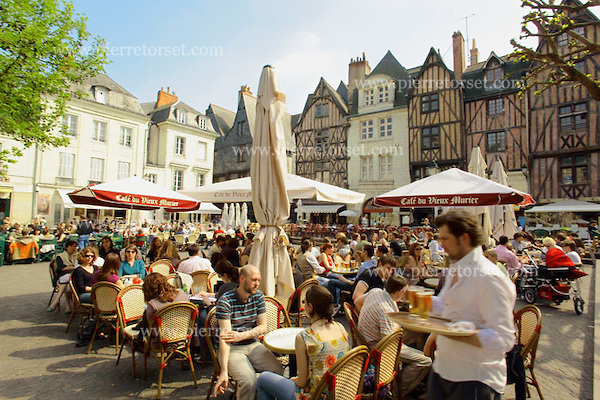
View of the ‘Place Plumereau’, located in the old city of Tours, with its café terrasse and famous half-timbered houses. The french city of Tours is located on the lower reaches of the river Loire, between Orléans and Saumur. It has a central location in the Loire Valley for anyone eager to discover the World Heritage site composed by Chateaux de la Loire and the Loire river.
Downtown is in walking distance. The streets are bustling with people on this wonderful spring day, and there are lots of different eating establishments. Rob selects an Italian restaurant, which serves his comfort food, spaghetti with meat sauce. I seem to have lost my appetite and go for a salad. After retrieving our luggage, we take a taxi to the near by station. The taxi driver, a young passionate man, with a slight accent is very sympathetic to our predicament. Hearing that we are from Canada going to a wedding, he is raving and ranting about the stupidity of the government, which lets these apparently frequent strikes happen. Apologizing for the inconvenience, which this strike is causing us, he is adamant in not accepting any fare or tip. He even carries our luggage into the station wishing us luck and “bon voyage” like a friend.
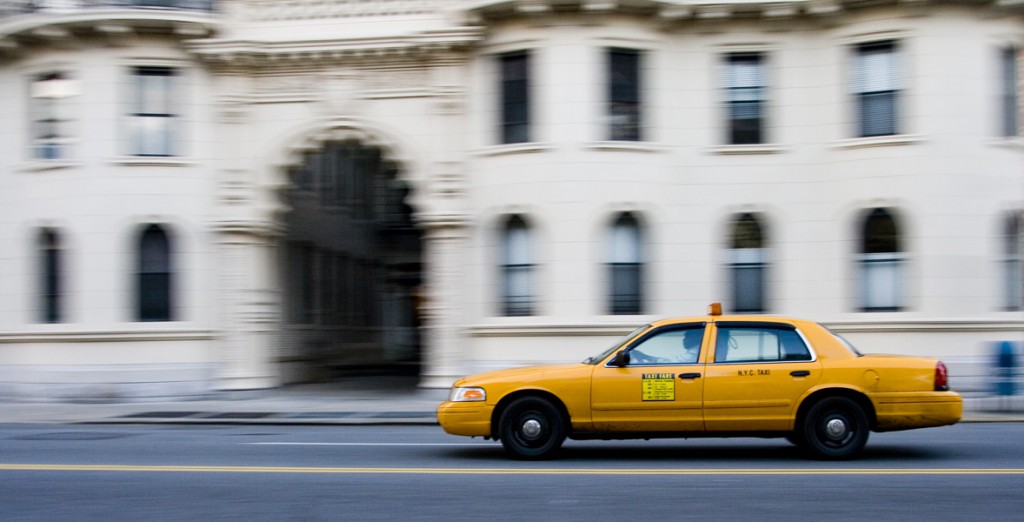
“Canada is a good country,” he says in parting with a big generous smile. We are deeply impressed by this unexpected hospitality of a complete stranger.
The station is packed with people. On the quay where the train to Paris is supposed to arrive crowds of people are standing, sitting or even lying around. Strangely enough, it is very quiet. There is definitely no holiday atmosphere. Most people have an apprehensive look staring silently in the direction from where the train is to come. No one knows the exact time. I have visions of people in war times, fugitives, soldiers, families, desperately waiting for a train to escape danger. There is no danger for us, only inconvenience.
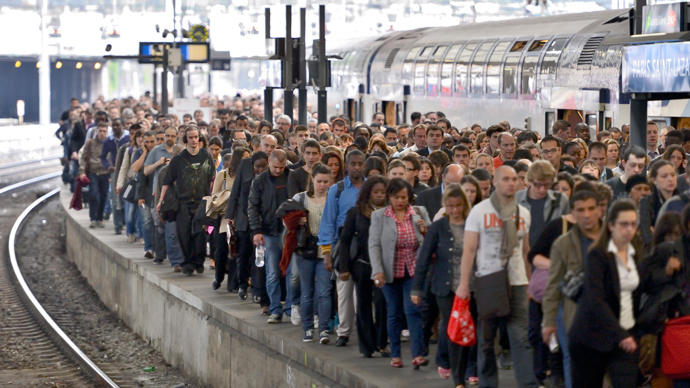
Eventually, after a long, silent wait, we hear the train approaching. My fear that people will brutally force their way into it, pushing and shoving, does not materialize. Everyone quietly and civilly waits their turn and boards in orderly fashion. Miraculously no one is left behind. A courteous gentleman with a friendly smile even offers me his seat in the overcrowded compartments. People start relaxing. Lively conversations spring up even among strangers as if everyone is trying to make up for the long silence. In this cheerful atmosphere we travel to Paris and make it from there safely to Saint Etienne to Richard and Agathe’s wedding. But that’s another long story.

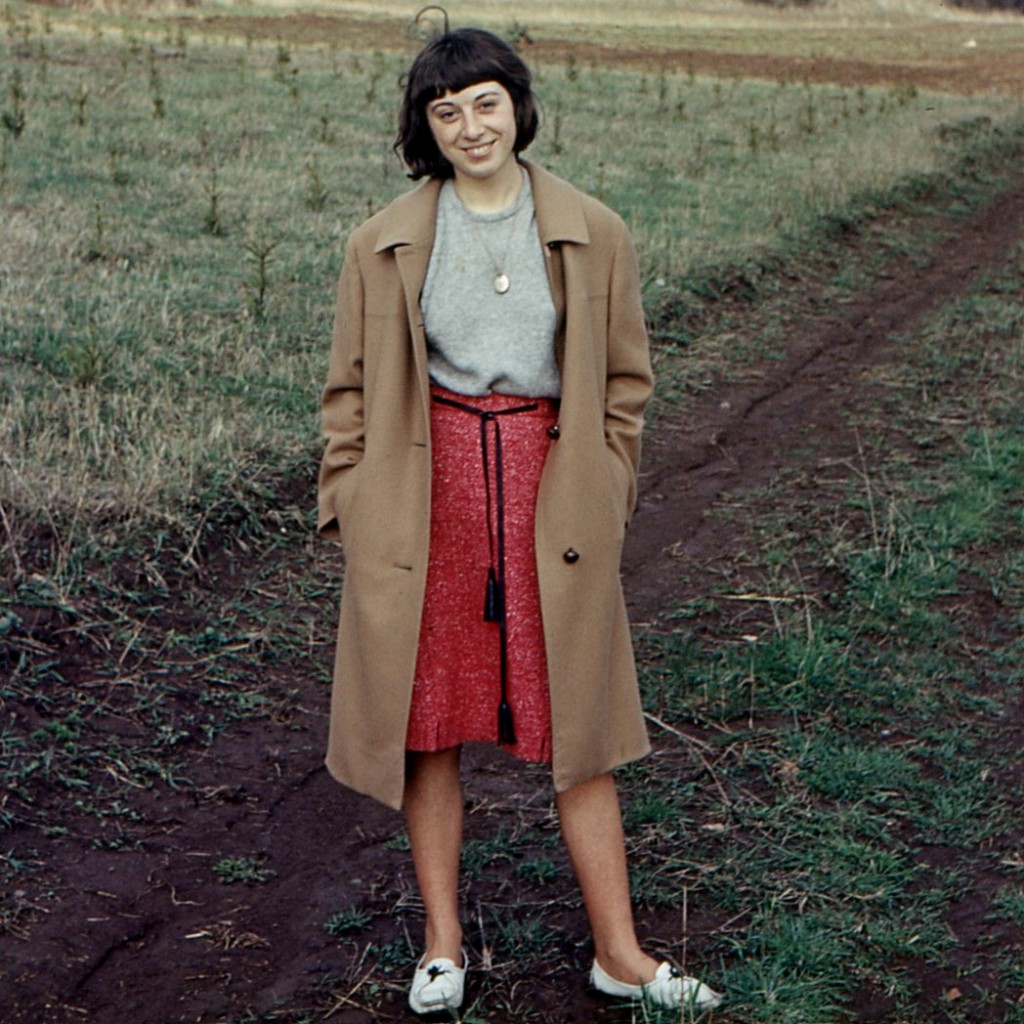
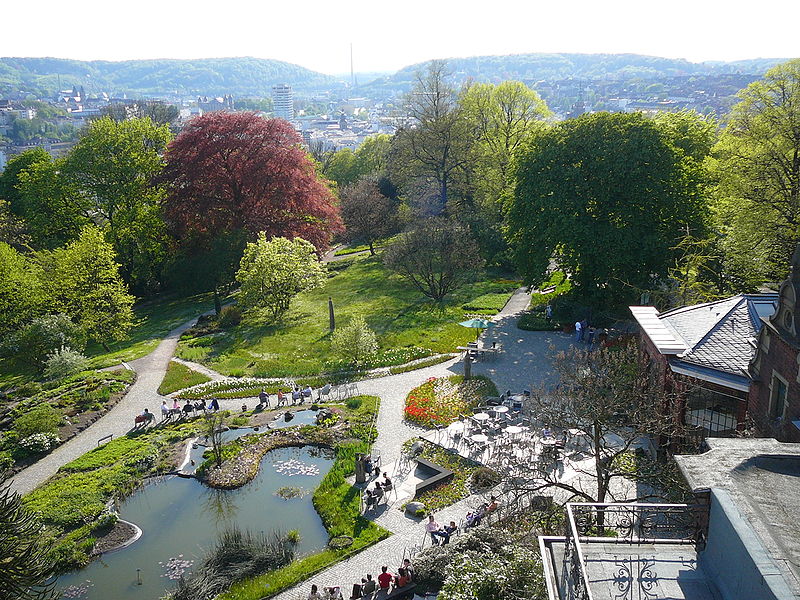
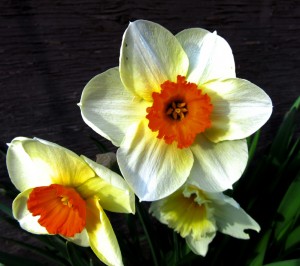
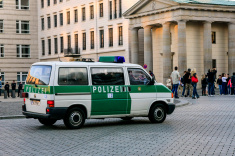 They curiously looked at the police car stopping at the curb right in front of them. I never forget their surprised and puzzled looks, when I emerged out of it. My friendly police escort carried my suitcase like a valet and delivered me (and my suitcase) safely to the perplexed group. After exchanging a few friendly words with my professor and the students he left.
They curiously looked at the police car stopping at the curb right in front of them. I never forget their surprised and puzzled looks, when I emerged out of it. My friendly police escort carried my suitcase like a valet and delivered me (and my suitcase) safely to the perplexed group. After exchanging a few friendly words with my professor and the students he left.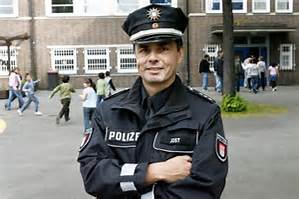

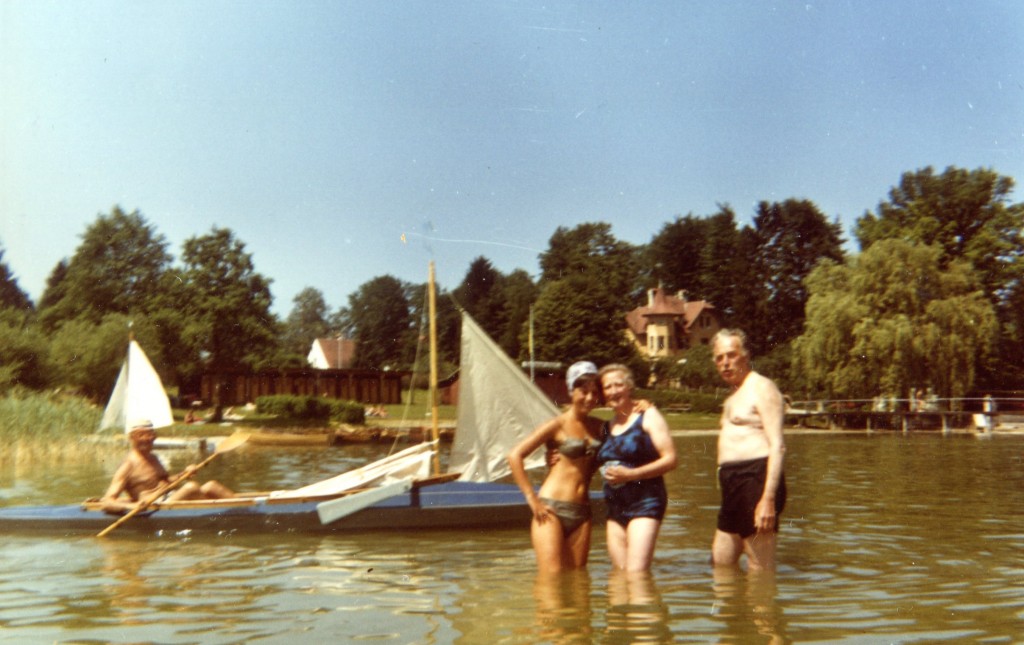


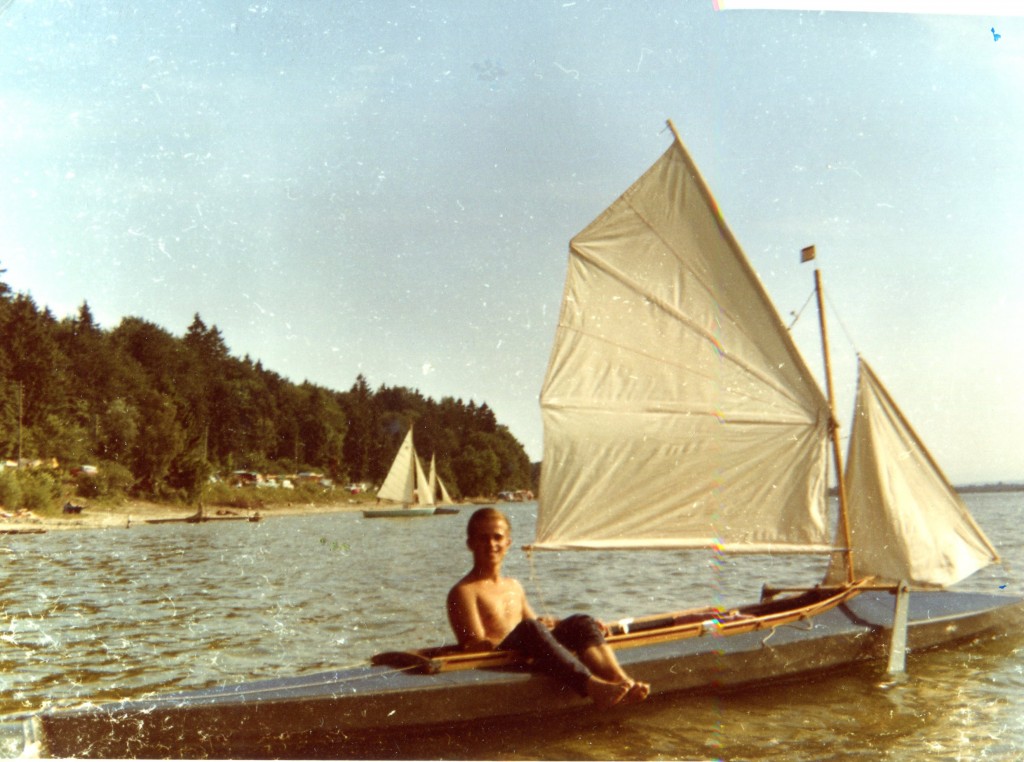
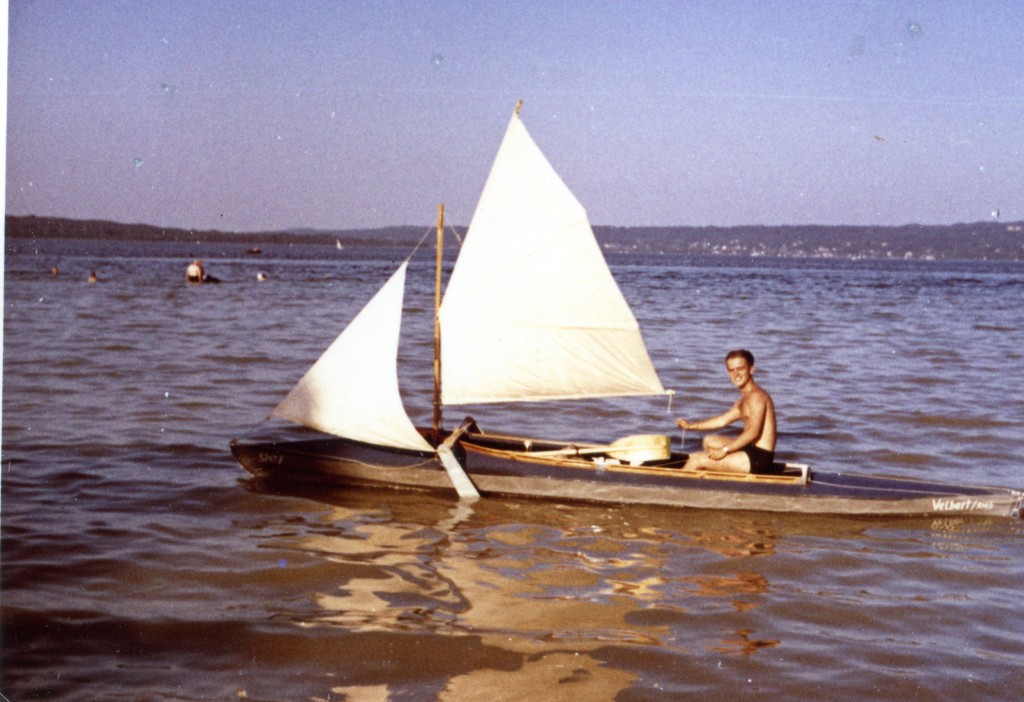



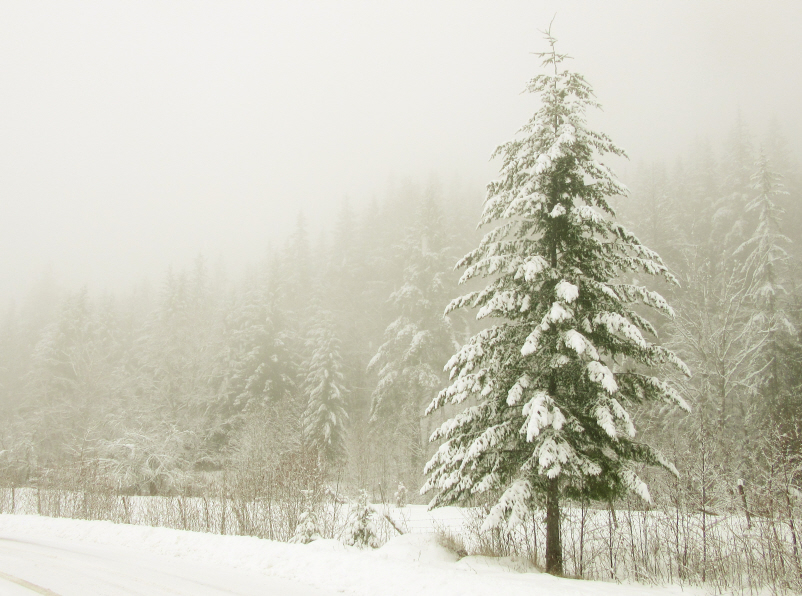
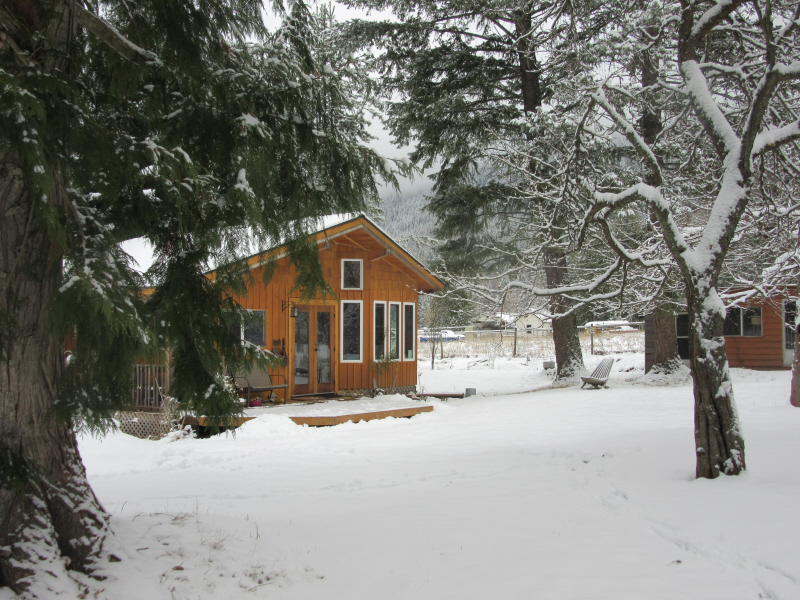
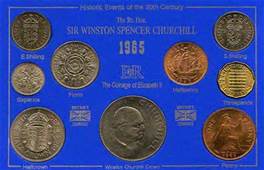
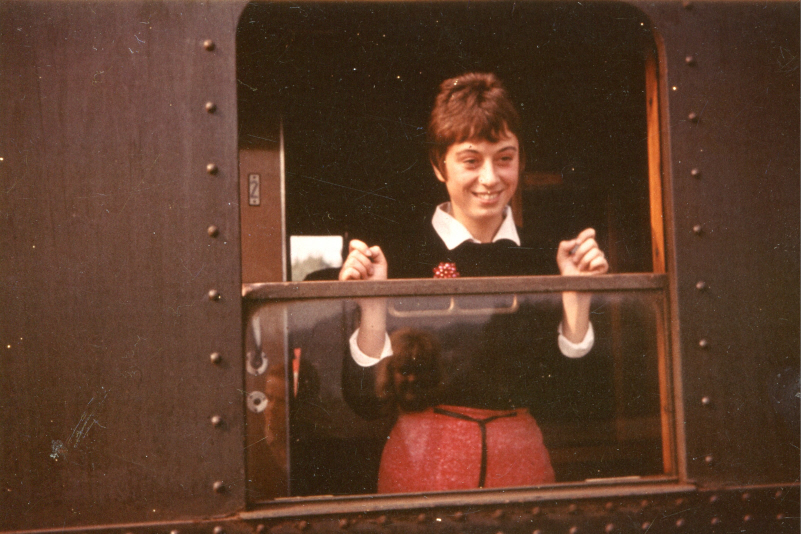 In the early morning hours we arrived in Dover and took a short train ride to London. My travel companions all dispersed in London and I was on my own. Although dead tired I did manage to do some sightseeing before my train departure to Manchester.
In the early morning hours we arrived in Dover and took a short train ride to London. My travel companions all dispersed in London and I was on my own. Although dead tired I did manage to do some sightseeing before my train departure to Manchester.
